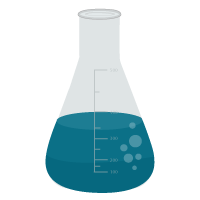DK / EN

Acute lymphoblastic leukaemia (ALL) is the most common childhood malignancy, and maintenance therapy is essential to prevent relapse. Maintenance therapy is long-lasting and involves daily intake of the oral drug 6-mercaptopurine (6-MP), among other things. This presents a challenge as patients must follow the prescribed treatment plan for a prolonged period, often without symptoms of leukaemia, while the treatment itself can be burdensome. Studies have associated intake of below 95% of the prescribed doses of 6-MP with a 2,7-fold increased risk of relapse.
In an international study based at Rigshospitalet Copenhagen, blood samples are collected from ALL patients receiving maintenance therapy and analysed for drug metabolites. Very low levels of metabolites may indicate that patients are not adhering to their treatment completely, and this is reported back to the treating physician, who decides whether interventions are necessary.
“The funding from the Vissing Foundation helps us examine the best strategies for monitoring maintenance treatment based on collected blood samples,” says Mathilde Rønne Koch, medical student, Paediatric Oncology Research Laboratory, Rigshospitalet.
This includes focus on strategies for reporting back to make the system more precise and efficient to identify situations where the treatment plan is not being adhered to.
“By increasing our knowledge of the pharmacology during maintenance therapy of ALL, this project can ultimately help improve the treatment efficacy and increase the chances of recovery in children and young adults with leukaemia,” says Mathilde Rønne Koch.